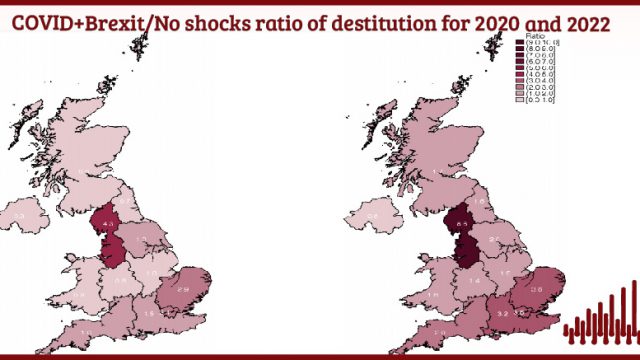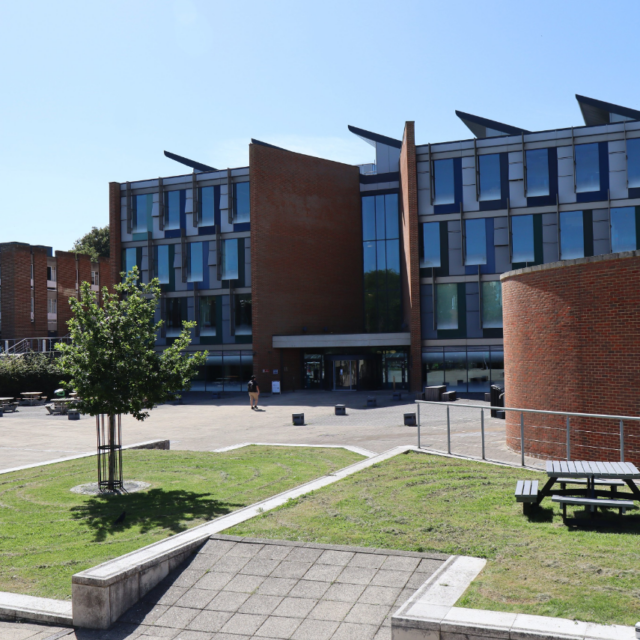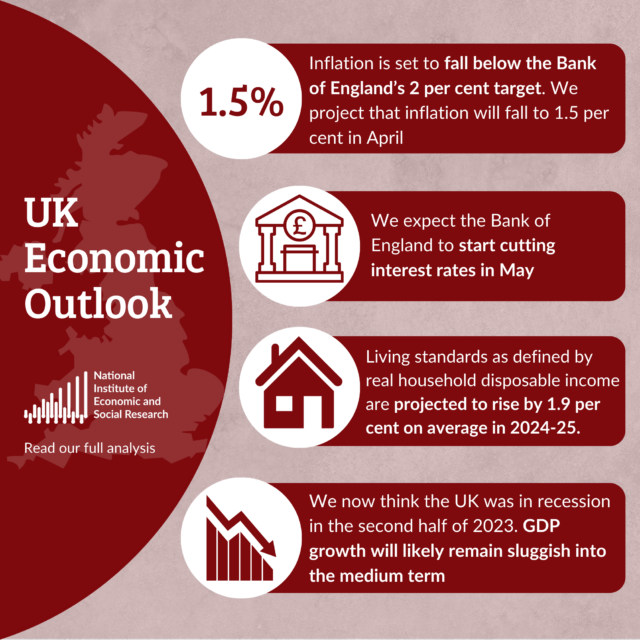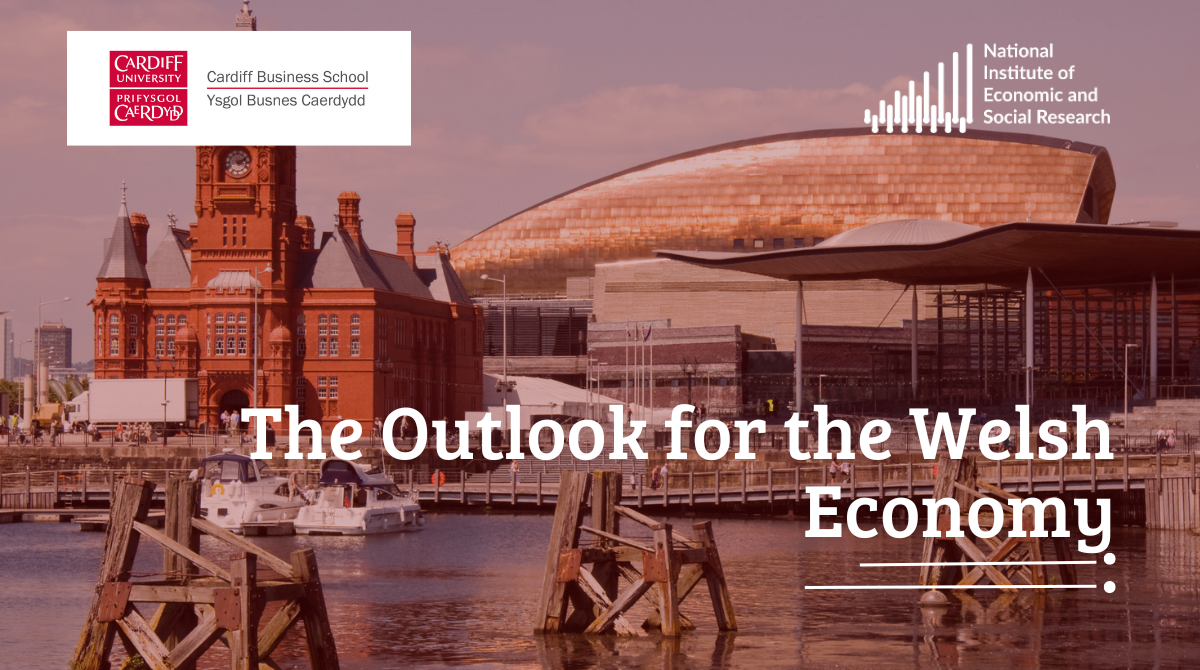Where Are We With Regional Inequalities in the UK?
The Prime Minister recently announced a Towns Fund to rebalance output and productivity growth and spread opportunities to those urban areas of the country that are less integrated into the global economy than London and other metropolitan parts such as Greater Manchester. In this week’s interview, our Director Prof Jagjit S. Chadha spoke with our Deputy Director Prof Adrian Pabst about the prospects for engineering sustained regional regeneration and what the main policy and institutional questions are in relation to devolution.

Where are we with regional inequalities in the UK?
The UK remains one of the most spatially unequal and over-centralised countries among the 38 members of the OECD. Some of the stylized facts that underline this chronic condition are, first, the significant extent of inter- and intra-regional disparities of wealth, health and other indicators of prosperity and well-being and, second, the disparities of resources and decision-making powers between different tiers of government.
It is not just that London and the metropolitan parts of the South-East are doing considerably better than much of the rest of the country and keep on powering ahead in terms of wage growth and productivity levels. We are projected productivity in London to go up from 68 to 70 by the end of 2024 while in the Midlands it is expected to fall from 32 to 30. There are also widening gaps within regions, including and especially London, between the wages of people who work in sectors that are more integrated in the global economy and international trade – such as finance and corporate law – and the wages of those working in sectors that are domestic and non-trading.
We are not closing the gap between the top performing and the worst performing parts of the country, which is at the heart of the Levelling Up White Paper of February 2022 and its 12 measurable missions. On the contrary, some disparities are widening: economic output, productivity growth, real wages but also housing, transport connectivity and access to transport as well as R&D spending and investment, not to mention gaps in the skills base and in local/regional capital markets.
How have we got to this point?
There is an increasingly clear consensus among researchers that regional inequalities became increasingly entrenched after deindustrialisation in the 1980s and after the recession following the 2008 financial crash. The work of our colleague at the Productivity Institute Philip McCann on the ‘geography of discontent’ shows this, as does the research by Andrés Rodríguez-Pose on ‘The revenge of the places that don’t matter’. Recently Ed Balls and researchers at Harvard published a paper on the drivers of inequality, the binding constraints but also available policy avenues to reduce regional disparities. Our quarterly outlook on UK regions has highlighted the lack of resilience in the face of shocks such as Brexit instability, Covid-19 and the spike in inflation following Russia’s invasion of Ukraine. Given that these shocks have hit other countries but have not produced the same scale of inequalities, it would seem that regionalities disparities in the UK are not inevitable and that they can be reduced. Indeed, countries such as Germany since reunification or Italy and France are doing much better at tackling some of the deeply entrenched disparities between fast-growing metropolitan areas and structurally disadvantaged parts. In relation to the UK, there is also a cross-party consensus that widening regional inequalities is a collective failure of Westminster and Whitehall and that the regional policy of successive governments over the past 40 years has largely been a failure. Among the key reasons are an endless chopping and changing of strategy, ministerial churn, and a lack of credible commitment of resources at scale, combined with devolving decision-making powers to lower tiers of government. To which we can add a number of fundamental governance pathologies that have beset the United Kingdom for decades. Arguably, a viable productivity, investment and Levelling Up strategy is undermined to a considerable extent by
- overcentralised control over resources
- top-down decision-making
- a short-termist outlook
- policy-making that lives in silos
- the absence of effective joined-up government both across central government and in relation to lower tiers of government
What can be done?
The country needs a convincing vision of national renewal, allied with a long-term, credible programme of investment. That means a break with short-termism both in politics and in many parts of the market, not least the City of London. We need wholesale political, institutional and policy reform, which raises a series of fundamental questions.
First, what matters most – institutions, policy, leadership? How do we prioritise reform? And how do we best align local/regional needs with central/national support? Second, if further devolution is part of the answer, which model should we privilege? Devolved parliaments and governments? A London-style mayoralty and assembly?
Mayoral Combined Authority with an elected mayor, such as the Greater Manchester Combined Authority? Or the Government’s move towards ‘County Deals’? Third, how best to create sustained, top-level political will and leadership that is necessary to overcome Whitehall’s centralisation of power and resources and devolve agency to lower tiers of government?
But there are also things we need to understand better. Most of all, what is the nature and evolution of inter- and intra-regional dynamics, notably the actual extent of positive and negative spill-overs from cities and technology clusters/investment zones to adjacent areas and beyond? The creation of the Towns Fund is a step in the direction, but it needs to be joined up with other initiatives and done at scale, otherwise it’s hard to avoid the impression that we are dealing with another short-term measure aimed primarily at electoral gain rather than national renewal.






















